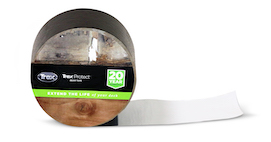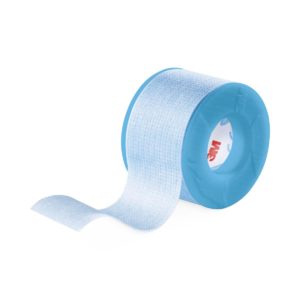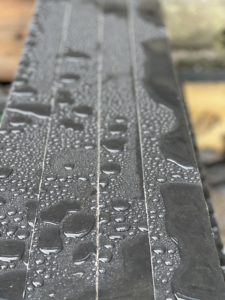Butyl Tape vs Silicone: Which is Better?
By Dave KileWhen working on at-home repair or construction jobs, you always want to make sure you have exactly the right materials for the job. But with so many options for sealant tape on the market, it can be tough to know which one is right for your project.
For building a new deck, you’ll want to ensure that the timber is protected by a sealant to extend its lifetime as long as possible. Continue reading below to learn how butyl rubber tape is the superior weather-resistant adhesive to silicone tape.
What is Butyl Tape?
Butyl tape is a rubber-based adhesive developed to augment its traditional rubber counterparts. Butyl can withstand extreme temperatures and maintain its stickiness at much colder temperatures than natural rubber.
It also has an instant initial stickiness to almost any surface and adheres well. Because of this, it makes for a great problem-solver when you need to repair in a pinch. It’s also very flexible, making it reliable when moisture is a factor, such as outdoors on your deck.
Butyl tape is the go-to sealant for many RV campers and boat enthusiasts because of its resistance to water and weather. It also works well and sticks to glass, metal, and timber, serving as an excellent tool for repairs or a deck’s substructure.
What is Silicone Tape?
Silicone tape is a readily available sealant and bedding compound. Adhesive to fibreglass, metal, timber, rubber, and vinyl surfaces, it takes 24 hours to cure. Made from cured silicone rubber, it has a thin silicone gel layer that fuses and forms a permanent bond to the applied surface.
However, silicone sealant has some disadvantages that make it unsuited for long-term projects or fixes. For example, many find silicone putty tape difficult to remove due to the bond it forms, which can create an even worse mess. The applied surface is also prone to absorbing some residual silicone that is squeezed out from under the hardware. It can also be a huge project to remove all the old silicone you once applied before re-bedding.
While typically cheaper than butyl tape, it also can dry out fairly quickly, which will reduce the integrity of your seal over time. Silicone fixes might be a good short-term fix, but they typically need to be resealed again in about a year.
Silicone vs. Butyl Tape Comparison
Which option is best comes down to the project you have at hand. While silicone provides a quick and cheap repair, butyl tape offers a much longer-lasting and more dependable seal. Adhesion, flexibility, and durability make butyl tape the best option for many repair and construction projects. Whether you’re working on leaks in your boat or mobile home, installing new windows or repairing a windshield, blocking minor leaks in water pipes, or repairing an EPDM rubber roof, butyl tape is the superior choice. However, for repairing old windows that have new leaks, silicone caulk or butyl caulking can be easier to apply. Butyl tape can also withstand circumstances of extreme temperatures or moist environments.
Pros and Cons of Using Butyl Tape
 As with any product, butyl sealant tape has its ups and downs. So let’s take a look at what makes it unique:
As with any product, butyl sealant tape has its ups and downs. So let’s take a look at what makes it unique:
Pros:
- Bonds securely to resistant surfaces
- It is more temperature-resistant and oozes less in extreme heat
- Flexible to be applied in a wide range of weather environments
- Usually more affordable than acrylic or silicone
- Creates an effective, airtight, and watertight barrier
- Seals better around decking hardware, like screws and fasteners, creating a tight seal
Cons:
- Because it is a solvent-based adhesive, it can dissolve if exposed to strong chemical solvents like gasoline, turpentine, or mineral oil
- It does not adhere well to very rough surfaces
- It can be affected by extreme temperatures despite improvements
Pros and Cons of Using Silicone Tape
Pros:
- Creates a permanent seal that seals leaks well
- Usually less expensive than butyl tape
- Works as a quick and easy fixing tool
Cons:
- It can be absorbed by surfaces and is difficult to remove
- It dries out quickly and doesn’t work well as a long-term sealant
- Less resistant to extreme weather situations
- Less adhesive and sticky to decking hardware
- It can take hours to cure
In most scenarios, especially those when you need a long-term, watertight seal, butyl tape beats out silicone tape. It is simply more well-suited to survive longer where moisture, low and high temperatures, and longevity are factors, such as supporting a deck and its substructure. When making an investment in your home that you want to last as long as possible, use butyl tape to ensure that it does.
Silicone tape might seem like a better short-term option because it’s cheaper and creates a permanent bond, but don’t let that fool you of its adverse effects. However, it can be an excellent material to have around the house or campgrounds when you need a quick fix. Trex Protect is a reputable butyl tape backed by a 25-year warranty and provides a Material Estimator that lets you find out exactly how much tape your project requires.